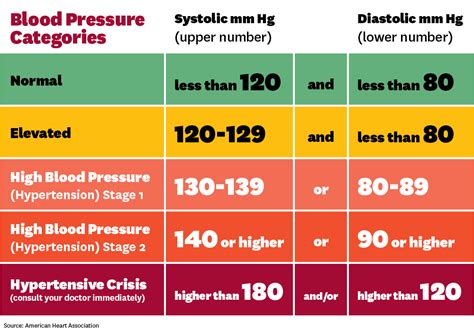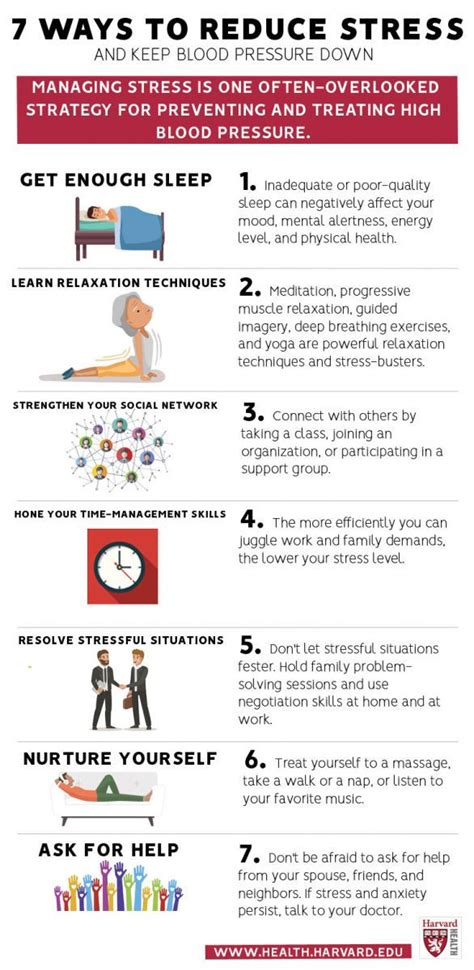Intro
Maintain healthy blood pressure naturally with lifestyle changes, diet, and stress management, reducing hypertension and cardiovascular risks through holistic approaches.
Maintaining healthy blood pressure is crucial for overall well-being. Blood pressure refers to the force of blood pushing against the walls of arteries as it circulates throughout the body. When blood pressure is too high, it can lead to serious health issues, including heart disease, stroke, and kidney disease. On the other hand, low blood pressure can cause dizziness, fainting, and inadequate blood flow to vital organs. Understanding the importance of healthy blood pressure and taking steps to manage it can significantly reduce the risk of developing these conditions.
The American Heart Association estimates that nearly half of all adults in the United States have high blood pressure, which is defined as a systolic pressure of 130 mmHg or higher or a diastolic pressure of 80 mmHg or higher. High blood pressure can be caused by a combination of genetic, lifestyle, and environmental factors, including a diet high in sodium, lack of physical activity, stress, and certain medical conditions. By making informed choices about diet, exercise, and stress management, individuals can take control of their blood pressure and reduce their risk of developing related health problems.
Managing healthy blood pressure requires a comprehensive approach that incorporates lifestyle modifications, regular monitoring, and, if necessary, medication. By understanding the factors that contribute to high blood pressure and taking proactive steps to mitigate them, individuals can maintain healthy blood pressure and reduce their risk of developing cardiovascular disease. This article will delve into the importance of healthy blood pressure, the benefits of maintaining a healthy blood pressure range, and provide practical tips and strategies for achieving and sustaining optimal blood pressure levels.
Understanding Blood Pressure

Factors That Affect Blood Pressure
Several factors can influence blood pressure, including age, family history, diet, physical activity level, stress, and certain medical conditions. As people age, their blood pressure tends to increase, and individuals with a family history of high blood pressure are more likely to develop the condition. A diet high in sodium, saturated fat, and cholesterol can also contribute to high blood pressure, while regular physical activity, stress management, and a balanced diet can help to lower blood pressure.The Benefits of Healthy Blood Pressure

Strategies for Maintaining Healthy Blood Pressure
There are several strategies that can help individuals maintain healthy blood pressure, including: * Eating a balanced diet that is low in sodium and saturated fat * Engaging in regular physical activity, such as walking or swimming * Managing stress through techniques like meditation or deep breathing * Getting adequate sleep and maintaining a healthy weight * Monitoring blood pressure regularly and working with a healthcare provider to develop a personalized treatment planDiet and Blood Pressure

Key Foods for Healthy Blood Pressure
Some key foods that can help to support healthy blood pressure include: * Leafy green vegetables, such as spinach and kale * Berries, such as blueberries and strawberries * Fatty fish, such as salmon and tuna * Whole grains, such as brown rice and quinoa * Low-fat dairy products, such as milk and yogurtExercise and Blood Pressure

Types of Exercise for Healthy Blood Pressure
Some types of exercise that can help to support healthy blood pressure include: * Brisk walking * Swimming * Cycling * Yoga * High-intensity interval training (HIIT)Stress Management and Blood Pressure

Strategies for Managing Stress
Some strategies for managing stress include: * Practicing mindfulness and meditation * Engaging in regular physical activity * Getting adequate sleep * Connecting with friends and family * Seeking support from a mental health professionalMonitoring and Managing Blood Pressure

Importance of Regular Monitoring
Regular monitoring of blood pressure is essential for: * Identifying high blood pressure early * Tracking the effectiveness of treatment * Making adjustments to lifestyle or medication as needed * Reducing the risk of cardiovascular diseaseWhat is considered healthy blood pressure?
+A healthy blood pressure reading is typically considered to be less than 120/80 mmHg.
What are the risks of high blood pressure?
+High blood pressure can increase the risk of heart disease, stroke, and kidney disease.
How can I lower my blood pressure?
+Lifestyle modifications, such as eating a balanced diet, engaging in regular physical activity, and managing stress, can help to lower blood pressure.
In conclusion, maintaining healthy blood pressure is crucial for overall well-being, and individuals can take control of their blood pressure by making informed choices about diet, exercise, and stress management. By understanding the factors that contribute to high blood pressure and taking proactive steps to mitigate them, individuals can reduce their risk of developing cardiovascular disease and improve their overall quality of life. We invite you to share your thoughts and experiences on managing healthy blood pressure in the comments below, and don't forget to share this article with friends and family who may benefit from this information.
